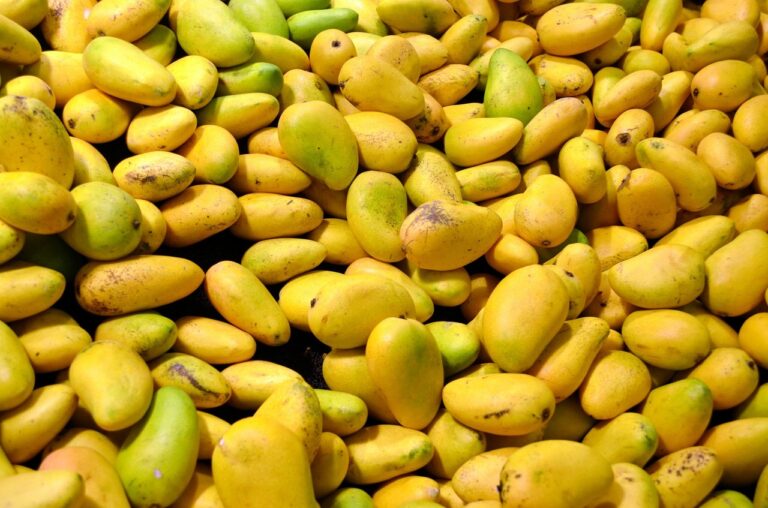Trends in Probiotic Foods for Institutional Food Service: All panel login, Mahadev book online, Get cricket id
all panel login, mahadev book online, get cricket id: Probiotic foods have become increasingly popular in recent years, with more people becoming aware of the benefits they offer for gut health and overall well-being. This trend has also made its way into institutional food service, where chefs and food service managers are incorporating probiotic-rich foods into their menus to provide customers with a healthier dining experience. In this article, we will explore the trends in probiotic foods for institutional food service and how they are being embraced by the industry.
What are Probiotic Foods?
Before we delve into the trends in probiotic foods for institutional food service, let’s first understand what probiotic foods are. Probiotics are live bacteria and yeasts that are good for your health, especially your digestive system. They are often referred to as “good” or “friendly” bacteria because they help keep your gut healthy.
Probiotic foods are those that contain live probiotics or have been fermented with beneficial bacteria. Some examples of probiotic foods include yogurt, kefir, sauerkraut, kimchi, kombucha, and tempeh. These foods can help improve digestion, boost the immune system, and support overall gut health.
Trends in Probiotic Foods for Institutional Food Service
As more people become health-conscious and seek out foods that promote gut health, the demand for probiotic foods in institutional food service has been on the rise. Chefs and food service managers are looking for ways to incorporate probiotic-rich foods into their menus to cater to this growing trend. Here are some of the trends in probiotic foods for institutional food service:
1. Plant-Based Probiotic Foods: With the increasing popularity of plant-based diets, chefs are incorporating probiotic-rich plant-based foods into their menus. Fermented foods like tempeh, miso, and kimchi are great additions to plant-based dishes and provide customers with a healthy dose of probiotics.
2. Probiotic Beverages: Kombucha, a fermented tea drink, has been gaining popularity in recent years for its probiotic content. Chefs are now offering kombucha on tap in institutional food service settings as a refreshing and healthy beverage option for customers.
3. Probiotic Bowls: Bowls are a popular food trend in institutional food service, and chefs are now incorporating probiotic-rich ingredients like fermented vegetables, pickles, and yogurt into their bowl creations. These bowls offer a nutritious and delicious way for customers to get their probiotics.
4. Probiotic Desserts: Chefs are getting creative with probiotic-rich ingredients in desserts, such as yogurt parfaits, probiotic ice cream, and fermented fruit sauces. These desserts not only satisfy customers’ sweet cravings but also provide them with a dose of gut-healthy probiotics.
5. Probiotic Condiments: Fermented condiments like kimchi relish, probiotic salsa, and miso aioli are becoming popular additions to institutional food service menus. These condiments not only add flavor to dishes but also provide customers with a dose of probiotics.
6. Probiotic Snacks: Probiotic-rich snacks like probiotic popcorn, fermented nuts, and seed mix, and kombucha gummies are becoming go-to choices for customers looking for a healthy snack option. Chefs are incorporating these snacks into their menus to cater to the growing demand for probiotic foods.
FAQs
Q: Are probiotic foods safe for everyone?
A: Probiotic foods are generally safe for most people, but those with compromised immune systems or certain medical conditions should consult with a healthcare provider before consuming them.
Q: How can chefs ensure the probiotics in their foods remain active?
A: To ensure the probiotics in their foods remain active, chefs should avoid cooking or heating probiotic foods excessively. Fermented foods should be served at the appropriate temperature to preserve the live cultures.
Q: Can probiotic foods help with digestion?
A: Yes, probiotic foods can help improve digestion by promoting the growth of good bacteria in the gut and balancing the gut microbiome.
In conclusion, the trends in probiotic foods for institutional food service are on the rise as more people seek out foods that promote gut health and overall well-being. Chefs and food service managers are embracing this trend by incorporating probiotic-rich foods into their menus to cater to the growing demand. By offering a variety of probiotic-rich options, institutional food service establishments can provide customers with a healthier dining experience while staying on top of the latest food trends.







